

ブログ
Initiatives in Mongolia — Overseas Expansion as a Key Strategy
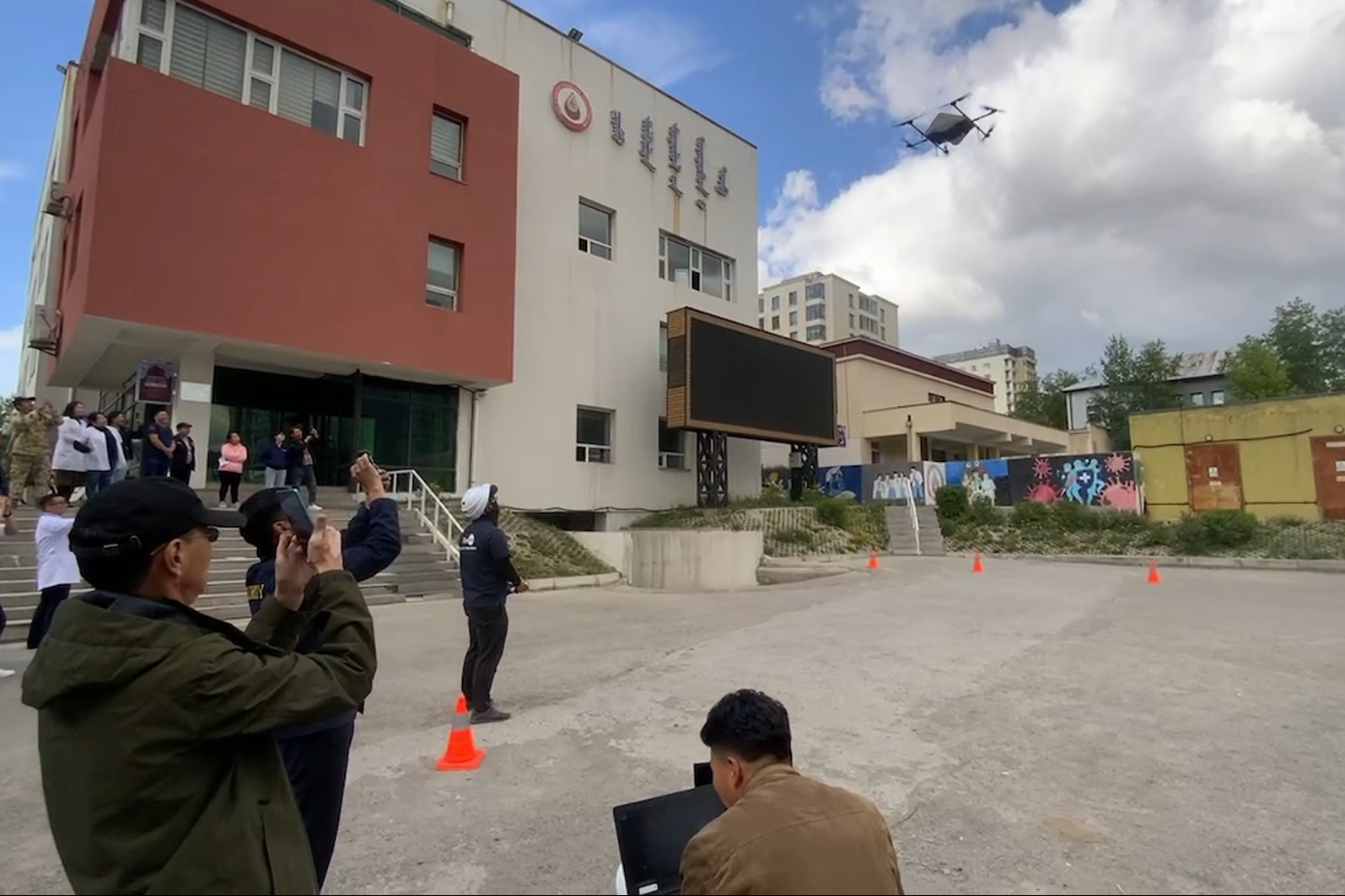
Aeronext has been selected for JICA’s “SDGs Business Supporting Survey” in Mongolia for two consecutive years, and is currently working to establish a regular delivery network for medical supplies using drones. In this blog, we will highlight Aeronext’s overseas expansion while looking back on its past efforts.
Synopsis of New Smart Logistics in Mongolia
In September 2023, Aeronext, together with leading Mongolian investment firm Newcom Group, Seino Holdings Co, Ltd. and KDDI SmartDrone Inc, held the New Smart Logistics Symposium in Ulaanbaatar, Mongolia and with the additional participation of JICA (Japan International Cooperation Agency), the National Center for Transfusion Medicine of Mongolia, and others, inaugurated the Mongolia New Smart Logistics Promotion Working Group.
In November of the same year, as the first step of this working group’s activities, a demonstration experiment was conducted in which a drone was used to transport blood from a blood transfusion center to a medical institution in the air over the urban area of Ulaanbaatar. The success of the automated flight in the extremely harsh environment of 1,300 meters above sea level, an outside temperature of -15 degrees Celsius, and over a populated area in the downtown area of the capital city, received a very positive response from Japan.
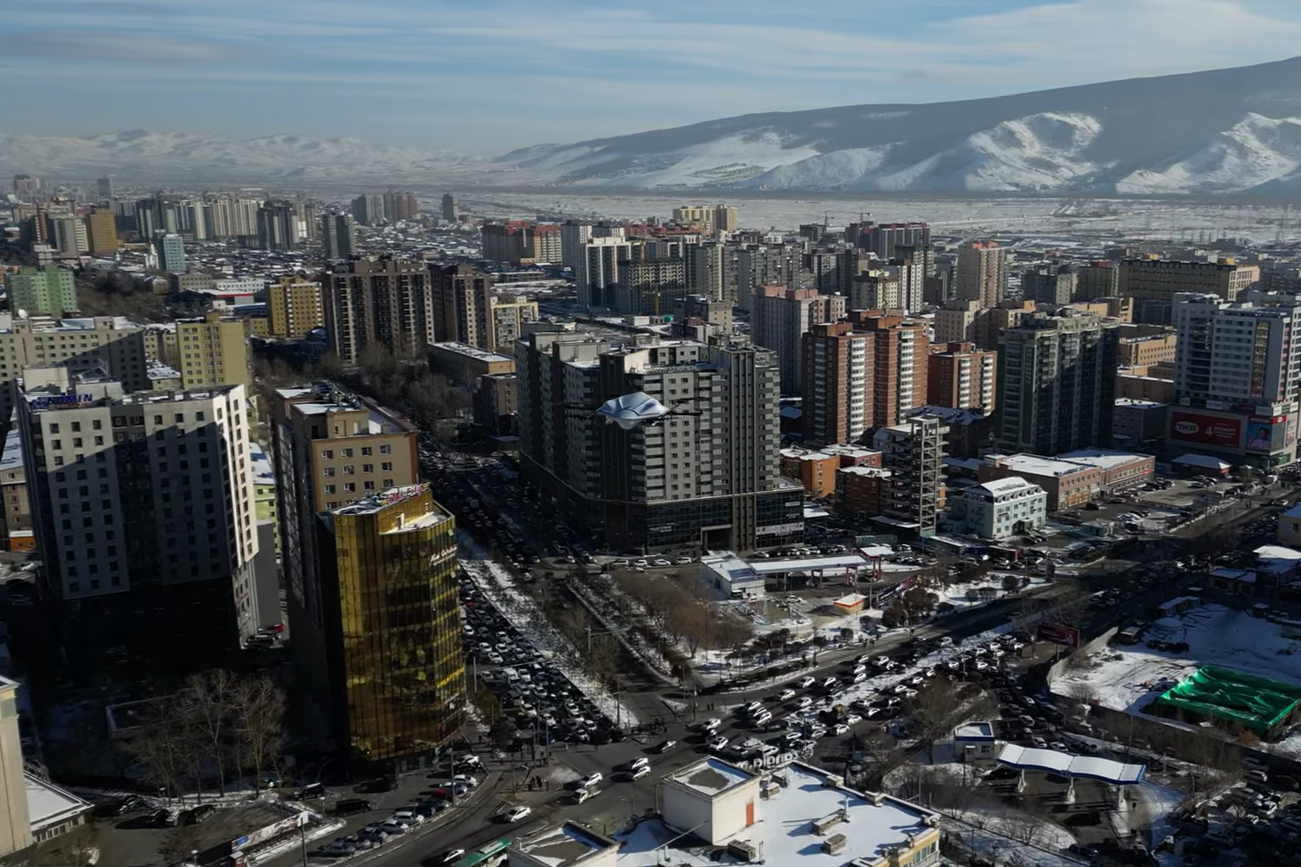
These series of initiatives were conducted within the framework of the Needs Confirmation Survey for JICA’s FY2022 “SDGs Business Supporting Survey.” Aeronext, was selected for two consecutive years, FY2023 and again in January 2024, for FY 2024. The current SDGs Business Validation Survey is scheduled to run for approximately one and a half years until June 2025, is based on the needs identified in the previous fiscal year, and is aimed at building a business model and establishing a drone operation system.
Meanwhile, during the same period, Japan’s first drone delivery using the newly established “Level 3.5” flight was conducted in Kamishihoro Town, Hokkaido in December 2023. On January 6, 2024, when the Noto Peninsula earthquake struck, for approximately 10 days, a team formed by Aeronext’s Engineering Department and NEXT DELIVERY’s Operations Department conducted a drone delivery of medical supplies in the disaster area, a major undertaking by Aeronext.
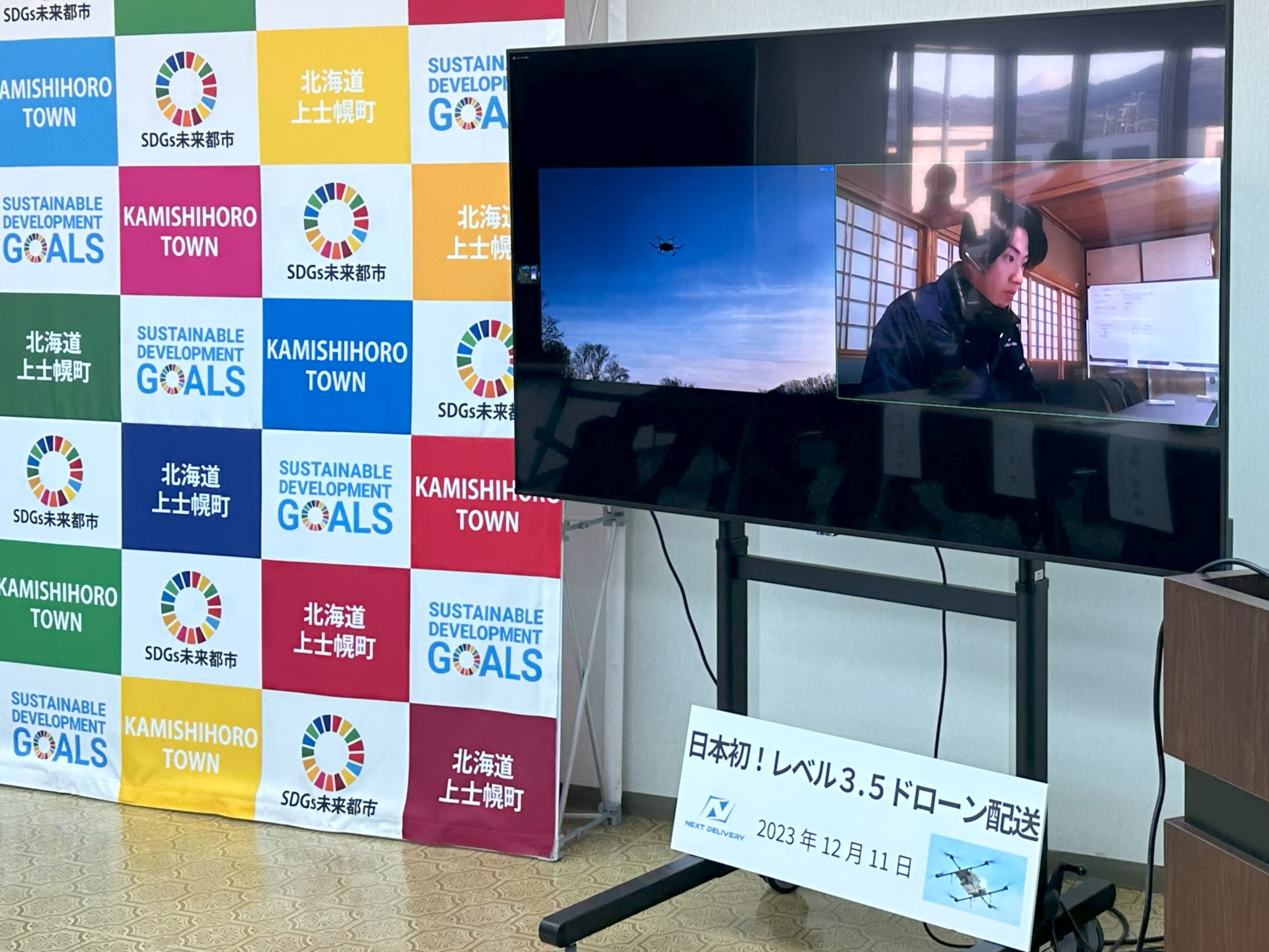
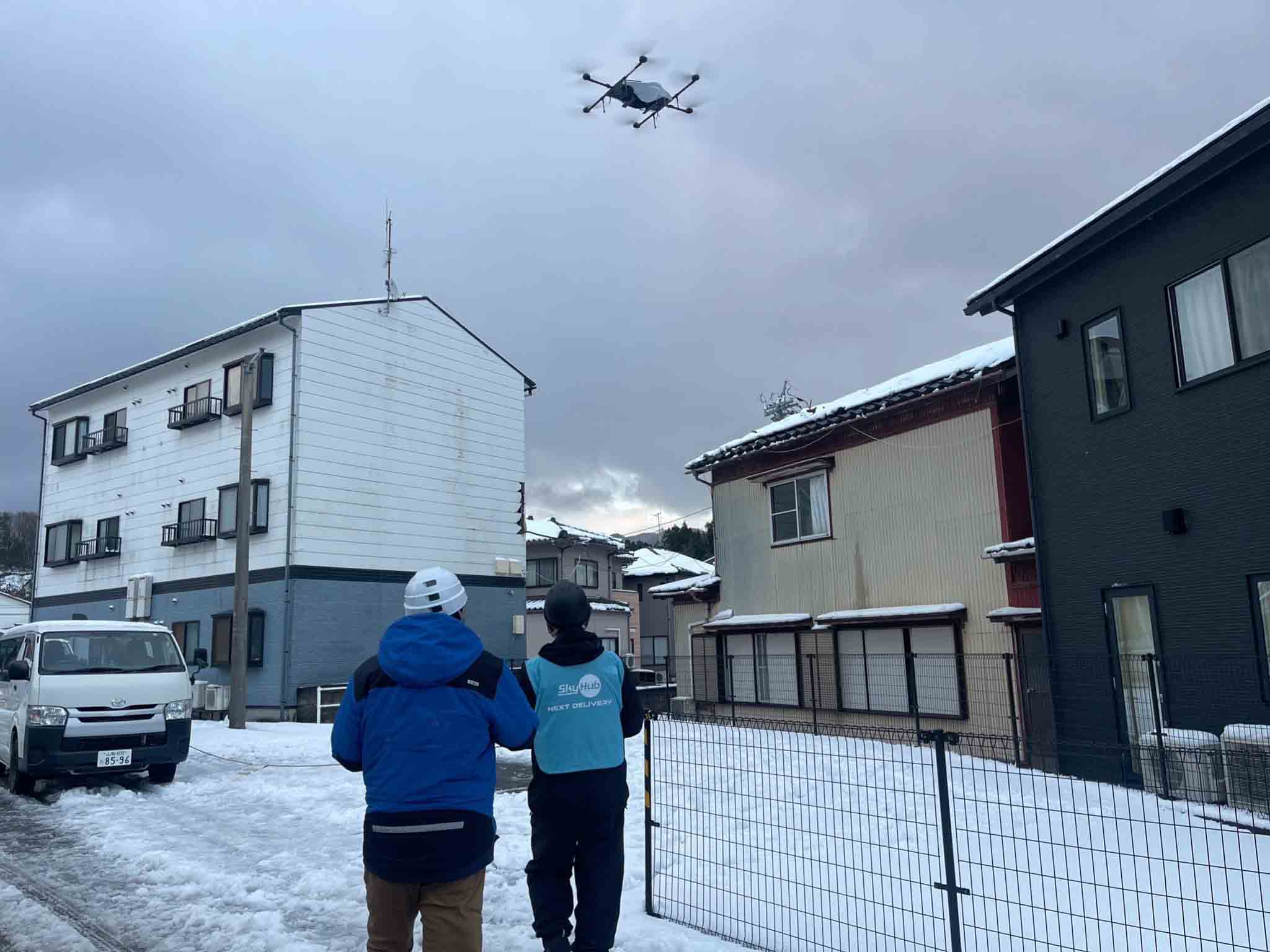
Aeronext places the highest priority on new projects in Japan, including disaster countermeasures and the promotion of new smart logistics, our existing business, while, at the same time, steadily promoting demonstration projects overseas. The successful experience of flying over an urban area in Ulaanbaatar has been a great asset for us as we continue to take on challenges in Japan.
COVID and the U.S.-China Conflict
“Why Mongolia?” Or even, more basic,“why overseas?
Since shortly after Aeronext’s founding, Aeronext has considered overseas expansion to be one of its key strategies. This is because Aeronext is a company that is committed to IP management, in order to maximize results with a small number of employees. Aeronext continues to implement its IP strategy to build its patent portfolio. The limited option of only engaging in the domestic market limits options and is not a viable choice for the medium to long term.
The city of Shenzhen, China, was the first place we focused on as a foothold for overseas expansion to integrate our business into the global ecosystem. Shenzhen, once a small fishing village, has been transformed into a high-tech city known as China’s Silicon Valley in about 30 years under China’s reform and opening-up policy. It is sometimes called the “holy land of drones” because DJI is headquartered there. At the time Shenzhen is also known as BATH, an acronym for Baidu, Alibaba, Tencent, and Huawei. Many major IT companies were setting up headquarters and bases there. Various leapfrog phenomena such as cashless payment, food delivery, and the sharing economy were typical of Shenzhen, and the city was emerging as a treasure trove of innovative human resources.
Kazufumi Kawanoue was one of the first to focus on Shenzhen around 2015 and started his own business there, arranging visits and business meetings for Japanese local government officials and Japanese companies in Shenzhen, and providing business development support, including communication support with local companies. Kazufumi Kawanoue has studied, worked, and started businesses in Beijing, Shanghai, Taiwan, and Shenzhen since the 2000s, and has deep knowledge of business in Greater China through his vast experience in the field.
From this encounter with Kazufumi Kawanoue, Aeronext became the first Japanese company to participate in the finals of the international pitch competition Start-up Star 2018 held in Shenzhen, China in 2018. Aeronext was awarded third place in the startup category and, at the same time, won the newly established Intellectual Property Award at the 11th edition of the Entrepreneurship Star, giving Aeronext a positive response to business development in China.
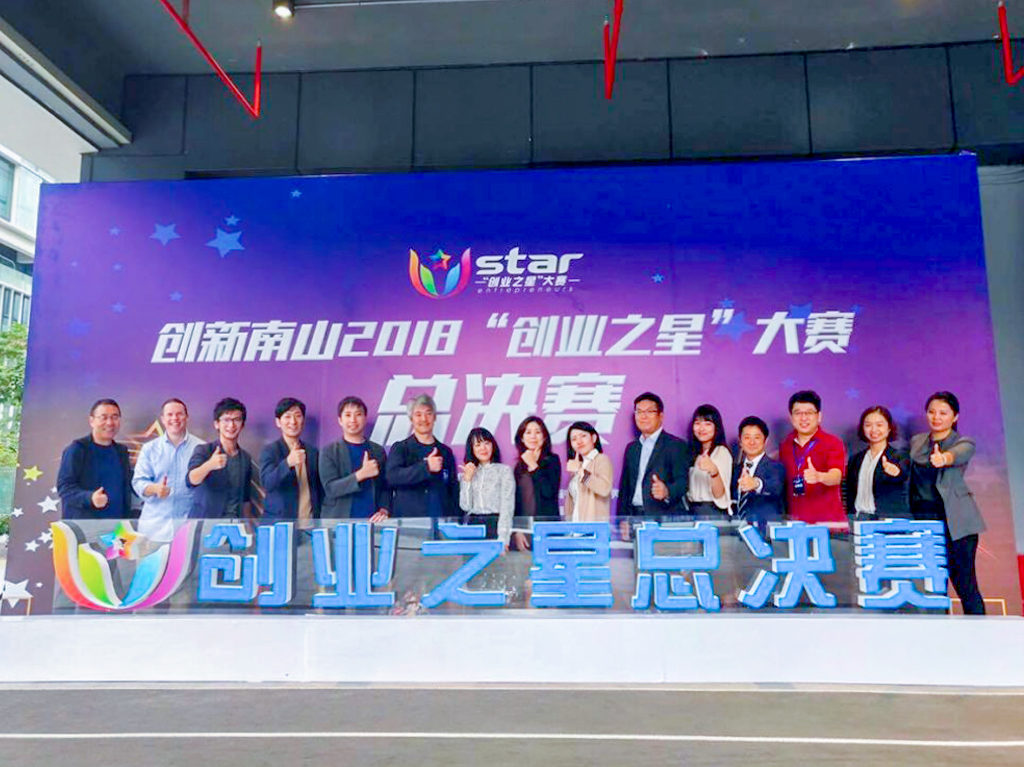
During a visit to a drone company in Shenzhen, Aeronext witnessed the incredible development speed of a research institute and test field, and subsequenlty felt a strong sense of urgency: “If Aeronext continues to do things only in Japan, the gap will widen.”
At “Entrepreneurship Star 2018.” Kazufumi Kawanoue is third from the left and Keisuke Toji, CEO, is sixth.
In 2019, Aeronext established a Chinese subsidiary in Shenzhen with Kazufumi Kawanoue as President of that subsidiary. After that, Aeronext exhibited at IFA in Berlin, Germany, and CES in Las Vegas, U.S.A., in rapid succession. Right when Aeronext was just getting started in 2020, the global pandemic of COVID-19 forced the company to put the brakes on its overseas expansion.
Then, DJI was added to the U.S. embargo list in December 2020, and the “anti-China” movement in the drone industry was accelerating at the same time the U.S.-China conflict deepens. In the face of these two global trends, Aeronext’s overseas expansion was once again in search of new opportunities.
Emerging Countries and the Leapfrog Perspective
Mongolia has emerged as a country that holds opportunites. This was a unique insight from Kazufumi Kawanoue, who had been following the “One Belt, One Road” policy, startup trends, and the latest developments in “leapfrogging” in China for many years.
Located in East Asia, Mongolia is a resource-rich country. Geopolitically, it is a democratic country sandwiched between China and Russia, making it an important diplomatic destination for Japan. JICA has long provided assistance in education and agriculture, in addition to urban infrastructure such as hospitals, schools, and a new airport, making it a friendly country toward Japan that comes with a deep trust in Japan. It is also one of the first overseas destinations for Japanese technical colleges, which offer Japanese-style education. There are three schools which have already produced graduates who are now active in Japan. In the past few years, young people who have experience abroad have formed startups, and leapfrogging has begun to occur in fields such as finance, medicine, and education. Some of these startups have begun to expand to the culturally similarly countries, including Kazakhstan and Kyrgyzstan.
While the population of Ulaanbaatar, the capital city, has grown rapidly due to the rapid settlement of nomads, social infrastructure such as transportation, roads, logistics, and electricity has not kept pace. The urban area, which is a basin, is facing serious traffic congestion and air pollution, partly due to the rapid expansion of the used car market as the income level of the middle class has risen.
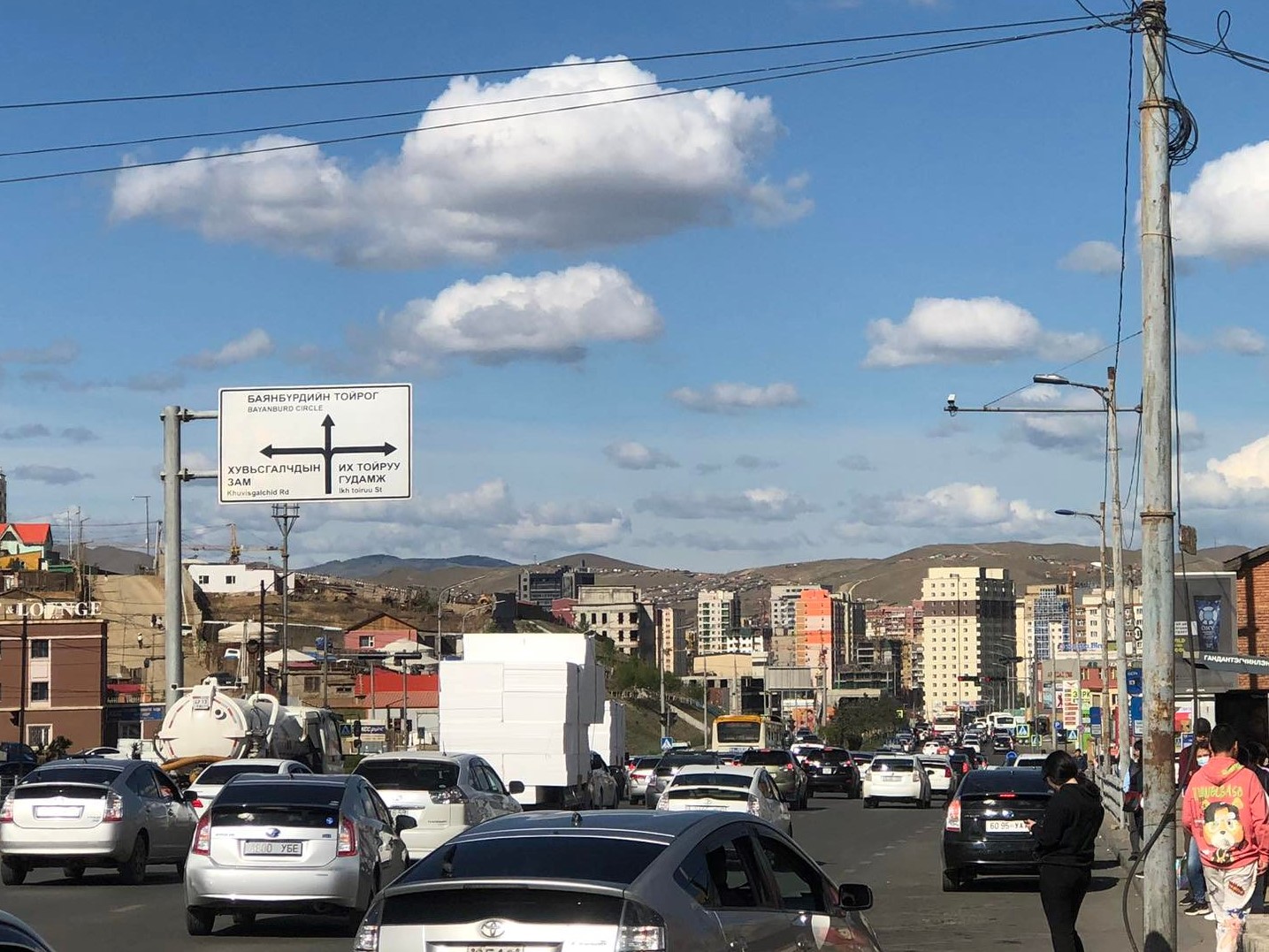
These social issues were so pressing that they were also interfering greatly with the medical field in Ulaanbaatar. While Mongolia is rich in mining resources and cashmere, which are export industries, most daily necessities are dependent on imports. There are hopes for the drone industry to create a new export industry.
Kazufumi Kawanoue said, “Mongolia may be the perfect place for us to explore urban solutions, leveraging our Japan knowledge and experience.” Aeronext believed that instead of waiting for the existing infrastructure of land routes to catch up, the possibility of air routes as a new logistics infrastructure has a chance to leapfrog in the transportation industry.
Japanese and Mongolian Staff: OneTeam
Two things were essential for Aeronext’s expansion into Mongolia. First was developing a compelling and clear use case. Second was finding a local partner with whom to work.
The November 2023 demonstration in Ulaanbaatar began with the enthusiasm of ERDENEBAYAR Namijil, head of the National Center for Transfusion Medicine. In the past, Dr. Namijil had gathered engineers to build a drone and attempted to transport it by air but had to give up the idea because of the difficulties involved in fine-tuning the aircraft and establishing an operational structure.
Why was he so eager to try drones? In Ulaanbaatar, during rush hour/commuting hours, a normally 20-minute drive could take 3-4 hours, and ambulances delivering blood products were getting caught in traffic jams. This greatly affected their dispatch to emergencies. Furthermore, interviews with hospitals revealed that the nurses who ride with the drivers transporting blood had much less time to spend on their primary medical services due to large amount of time spent in ambulances. Since transporting blood is almost a daily occurance, this leads to overwork on a regular basis for the nurses.
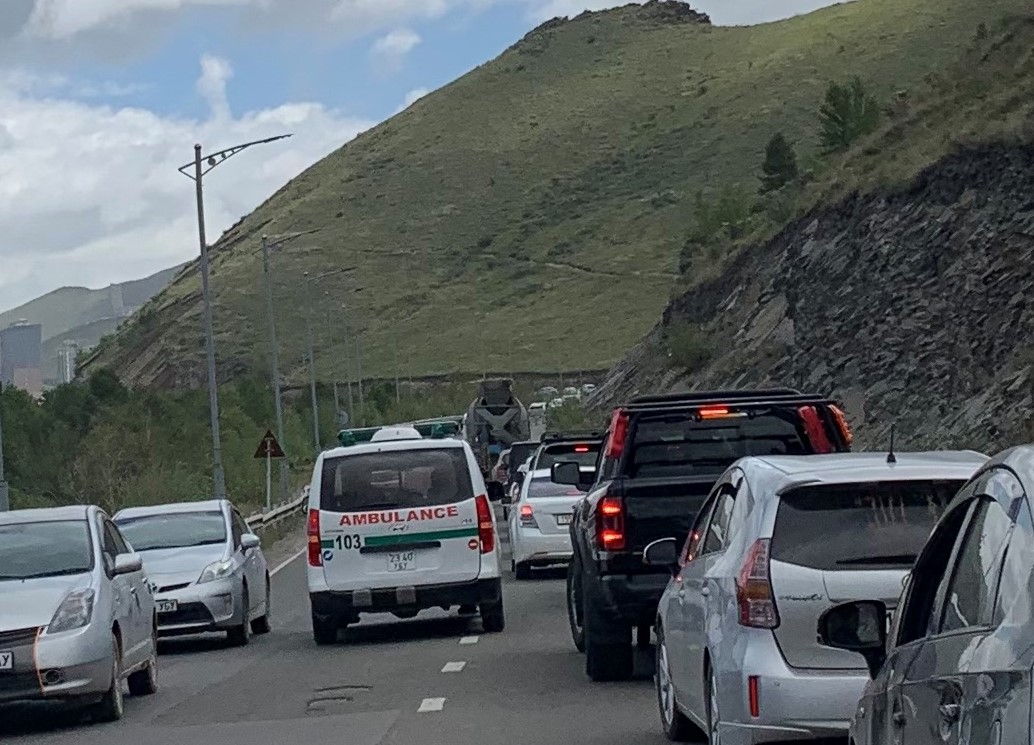
Aeronext was eager to tackle the clear need to deliver blood by drone to avoid these traffic jams. While that was a quick decision, it would be difficult for a startup like Aeronext to establish a market including providing a steady operation service overseas on its own. In addition, since drone aircraft alone are incomplete as a logistics infrastructure, it is also necessary to pursue societal implementation and undertanding of drones as one component of a new solution called “smart logistics.”
Kazufumi Kawanoue entered Mongolia and steadily developed a local network, which led to a connection with the Newcom Group, a major investment company interested in logistics and the drone business. Newcom Group is a company that has facilitated the building of the country’s infrastructure industries, such as telecommunications, energy, and real estate development, and has extensive experience working with Japanese companies. The international aviation business was an area of pursuit with the support of ANA. The CEO B. Baatarmunkh, who has worked as an aircraft pilot, was very positive toward a new infrastructure using drones.
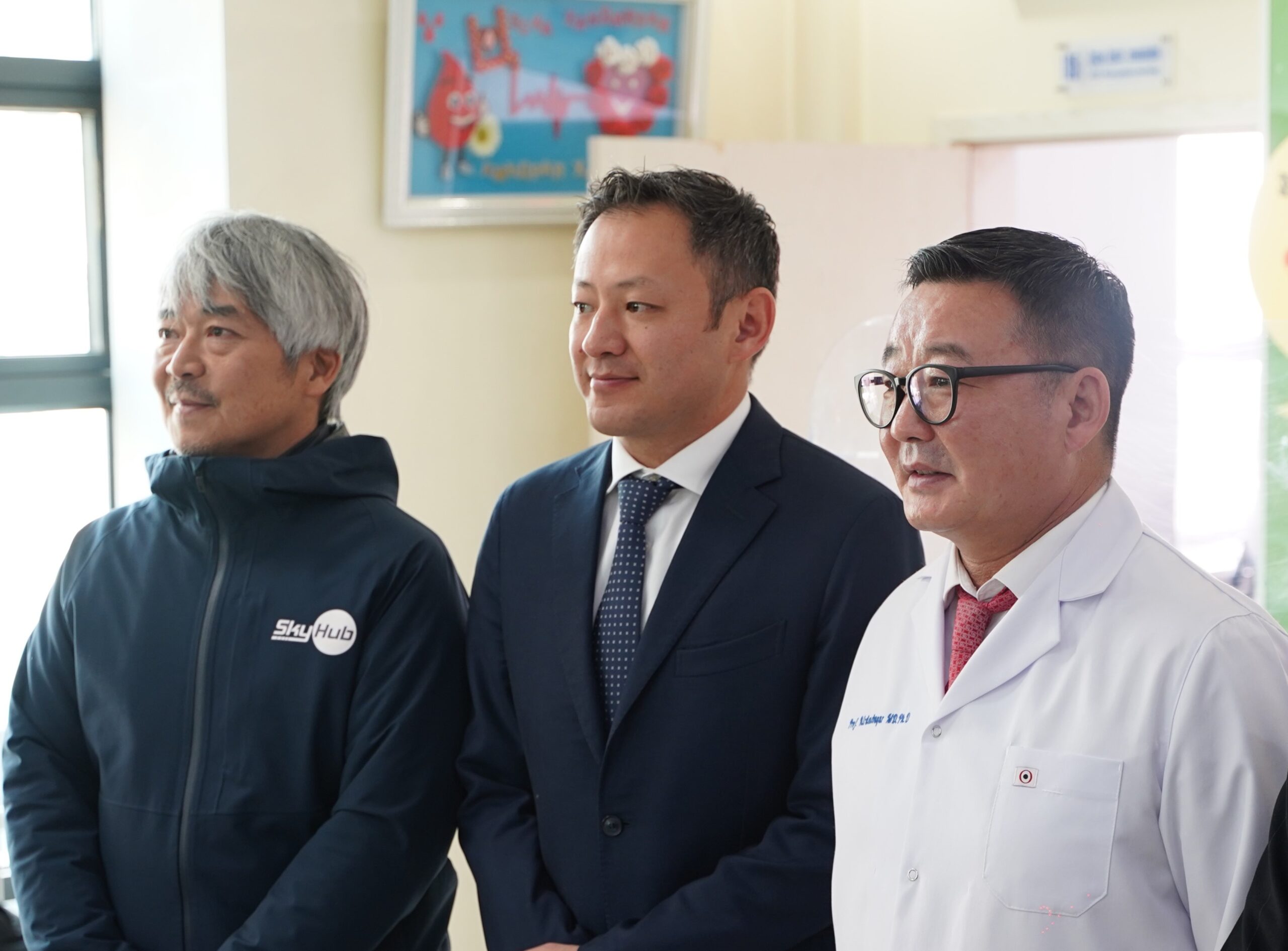
While laying the project groundwork and developing the local structure, the Operation Department and Engineering Department took the lead in serious discussions about whether or not the drone could actually be flown. At an altitude of 1,300 meters above sea level, the atmospheric pressure is low, and the outside temperature can drop to -40°C. It was unknown whether it would be possible to remotely manage and automatically navigate, a Level 4 flight as defined in Japan, a 9.5 km round trip over the city of Ulaanbaatar, with no communication problems.
As described in a blog in Japanese titled, “最強の運航チーム,” the members of the Operation Department, led by NEXT DELIVERY Director and Chief Operation Officer Aoki, are responsible for drone logistics for the new Smart Logistics SkyHub® throughout Japan, honing their operational skills in a variety of locations and environments. Aoki and his team members walked the site to survey the area and designed a flight route, taking into consideration the communications environment, such as the direction of the base station antenna and the altitude of the building, as well as the risk of a fall in case of an accident.
The Engineering Department also prepared in advance in Japan by carefully verifying and implementing countermeasures for anticipated events such as propeller speed and battery consumption, and Mr. Naito, the technical manager, accompanied the aircraft to the site from Japan. For the flight, a number of troubleshooting measures were taken by the team, such as repairing a warped fuselage caused by the cold, and properly managing the temperature of the fuselage and battery until just before the flight.
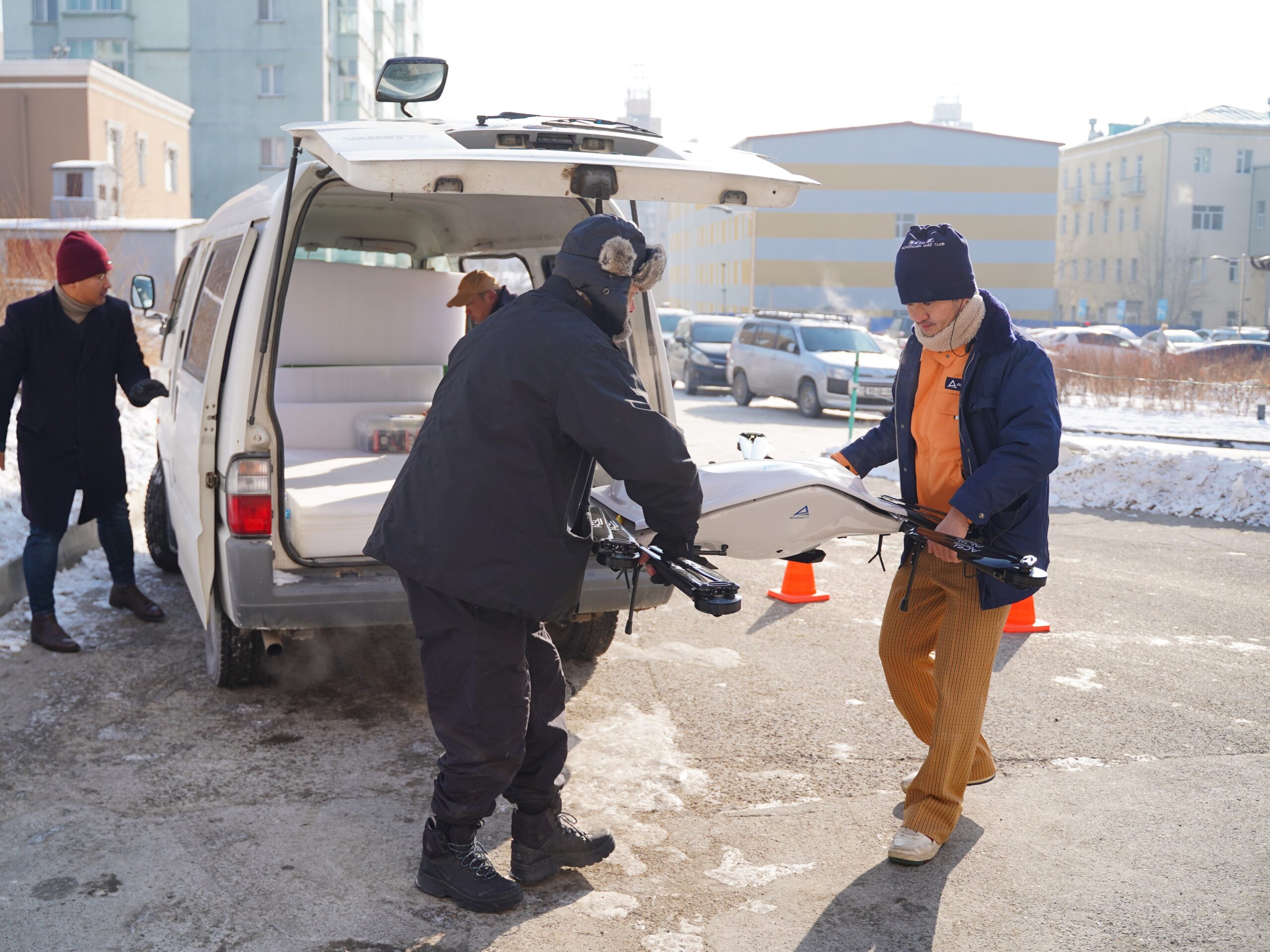
Naito (left) of the Engineering Department and Aoki (right) of the Operations Department carry the aircraft to the takeoff point. The aircraft and battery were kept warm indoors until just before the flight due to the -15°C outside temperature.
Within Mongolia, we were received with great enthusiasm. With the encouragement of JICA, which has a strong network with local administrative agencies, we contacted the Land Surveying and Mapping Agency and explained the societal significance of the project. The Land Surveying and Mapping Agency said, “We are willing to cooperate because Mongolian lives are at stake,” and as a result, in a generous and symbolic offer, we were offered use of the Digital Elevation Model (DEM) of the area to create a flight plan. The Newcom Group also made great efforts to coordinate with the Civil Aviation Authority and the City of Ulaanbaatar from an early stage and arranged for a number of support staff.
On site, the support staff proactively communicated with the flight operation team to ensure safe operations, accounting for the language barrier between assistants and the flight operation team and arranged for the best person to serve as an interpreter during the operation, who passed the minimum necessary information to the flight operation team without time loss during the operation. Even when the rehearsal time was delayed, everyone stayed on standby in the cold weather to help, everyone noting that it was “for Mongolia.” The driver tactfully helped with local transportation and kept the aircraft warm in the car. The success of the first demonstration project was because both Japanese and Mongolian staff members were able to work independently as one team, proactively addressing issues and problems, all to help create solutions for societal issues in Mongolia.
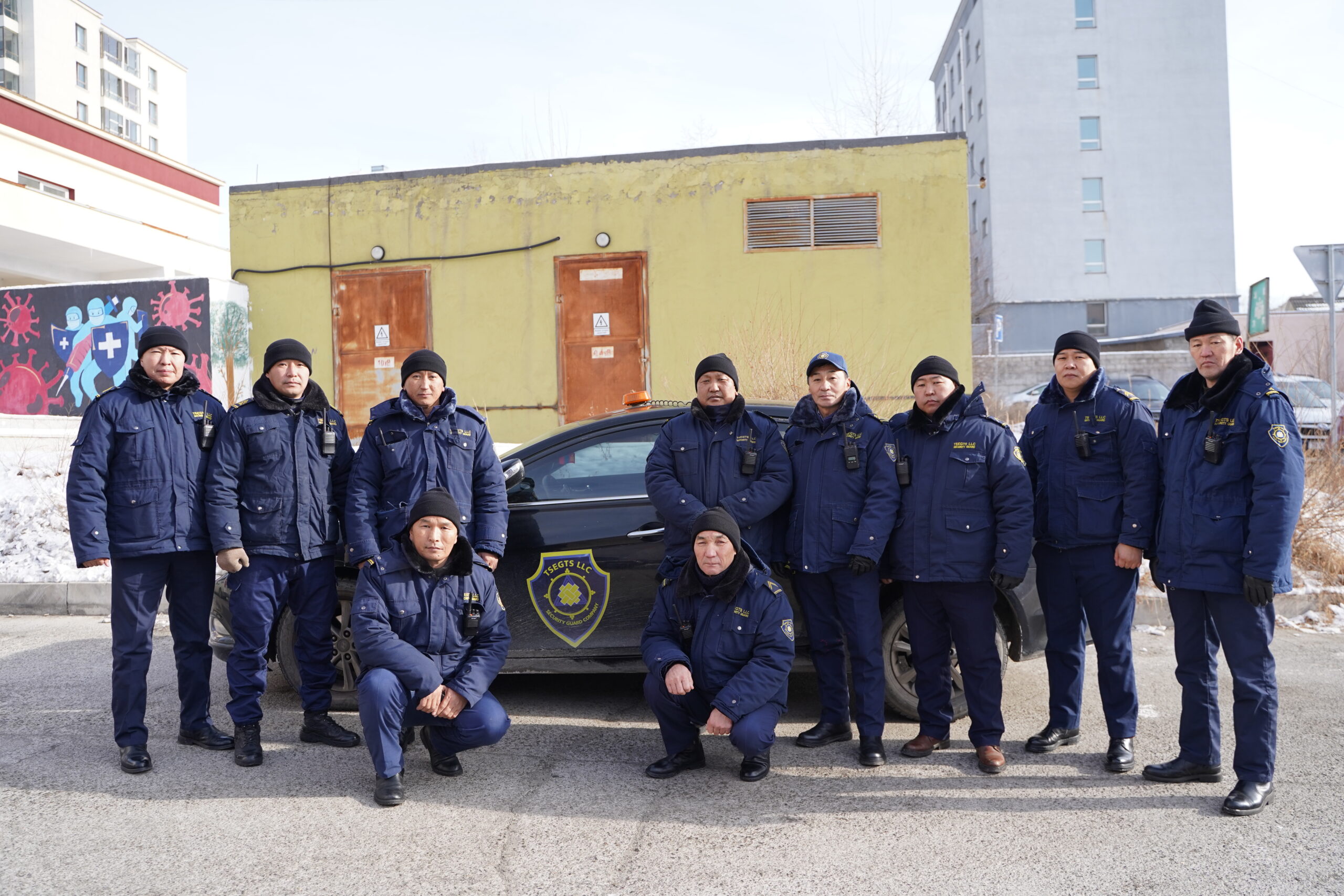
From Japan, Shuji Kawai, Executive Officer of Seino Holdings, a co-developer of the new smart logistics system, took time out of his busy schedule to visit the site for an inspection tour. Masafumi Hirono, President & CEO of KDDI SmartDrone, came to the demonstration site and personally coordinated with the flight operation management system development members in Japan.
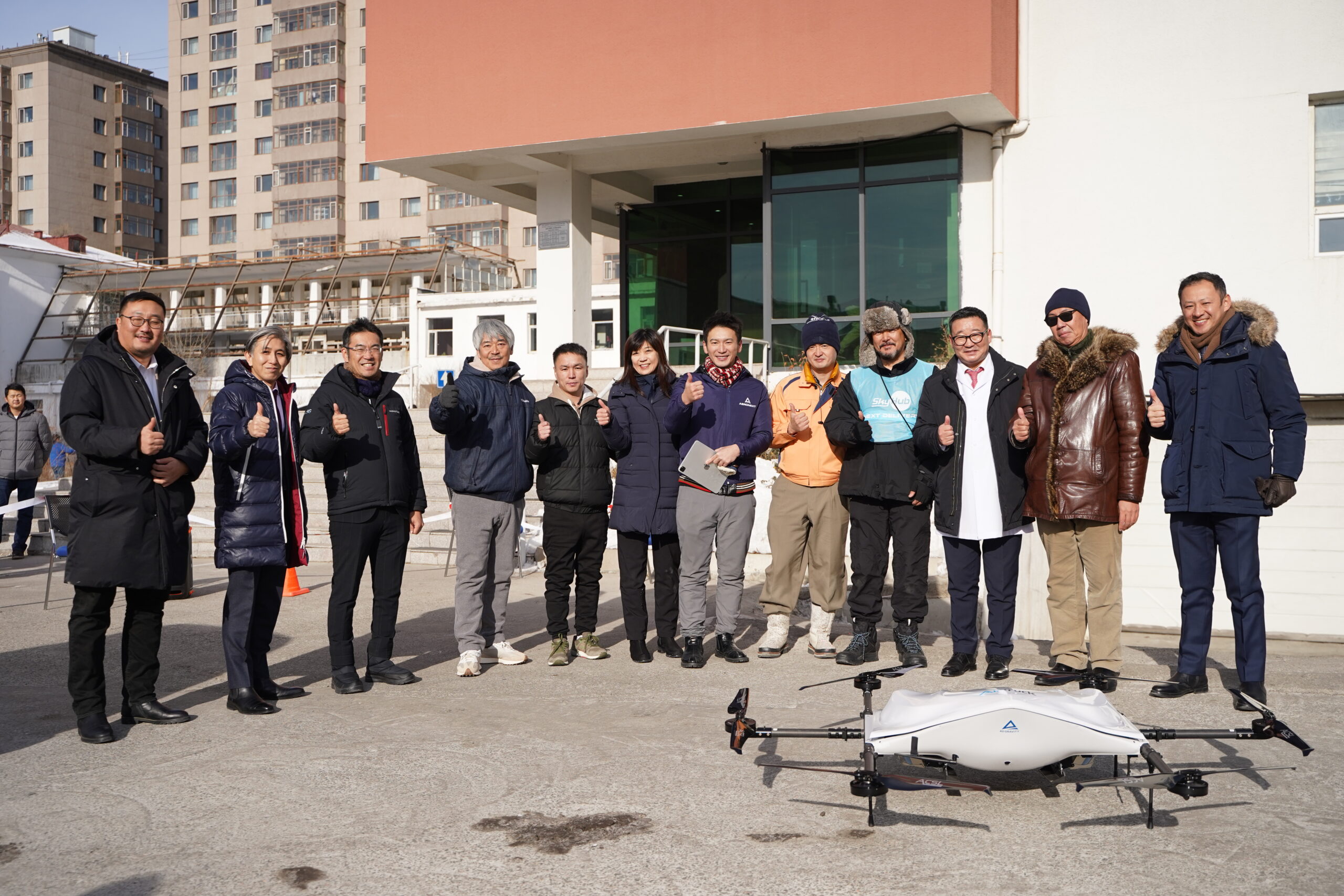
SDGs Business Validation Survey in Full Swing
The SDGs Business Validation Survey, now in the second year of this JICA-supported project, will start in earnest. From January to March 2024, prior to the start of the demonstration project, we accepted an engineer from a technical college from Newcom Group for a two-month training program. We have worked with the Newcom group previously when we officially entered into a business partnership last November, to Kosuge Village, Yamanashi Prefecture, the first implementation site of the new smart logistics SkyHub® in Japan. The engineer returned to Mongolia, and from May-July 2024 to endeavored to obtain the first commercial drone flight license in Mongolia while pursuing a project between our Operations Department and Newcom Group. (License was obtained on June 27, 2024).
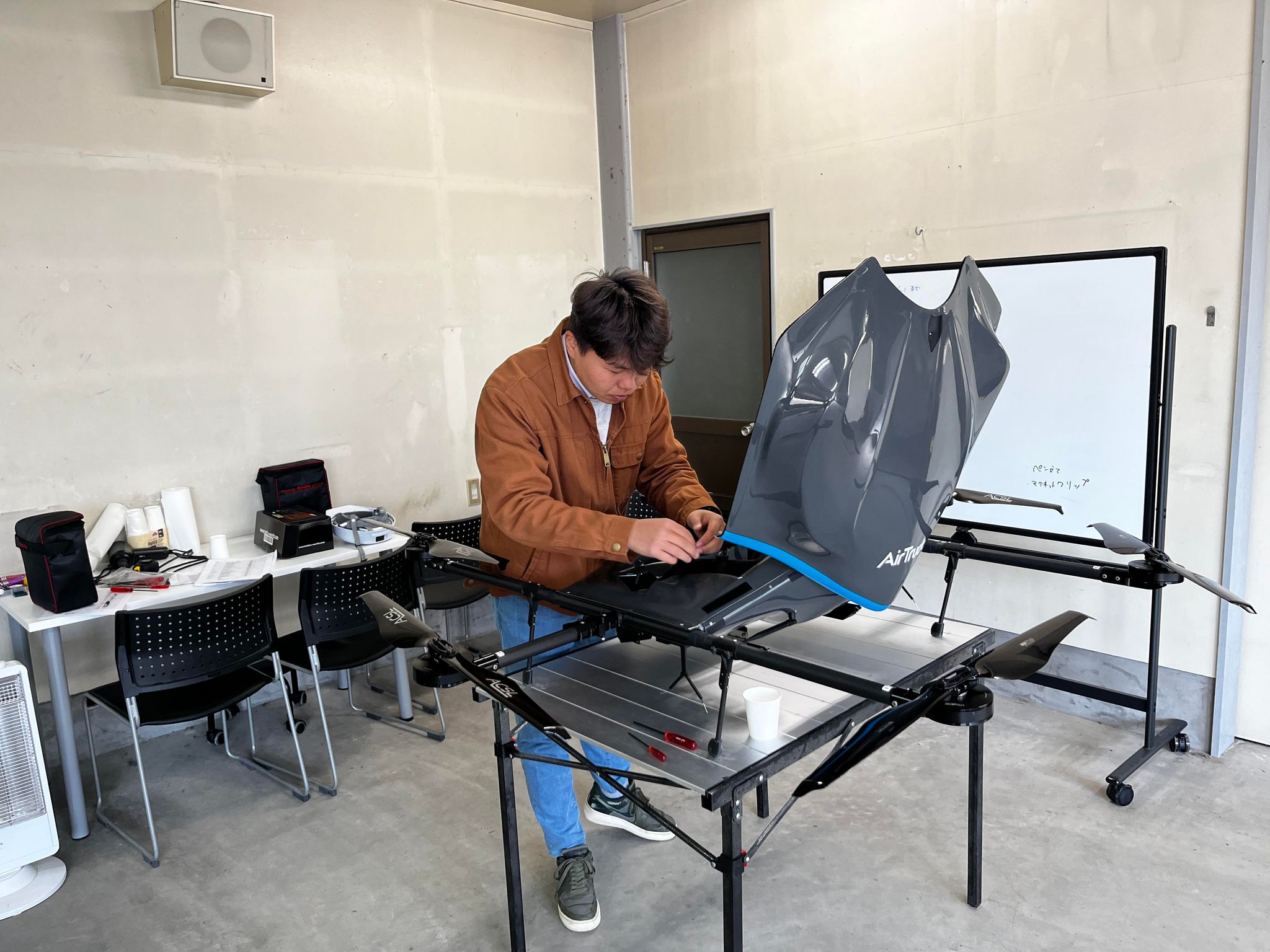

If we can work with the Newcom Group to create a leapfrog project, we can expect to attract more attention globally and to “reverse innovate” by returning the achievements in Mongolia to Japan.
In Japan, in 2024, we started the SkyHub® Provider License (SPL) agreement to license a part of our know-how, tools, and operations of the new smart logistics SkyHub® to third parties. In February 2024, the first SPL agreement was signed with Nakatsu Express Co. in Oita Prefecture, and in July 2024, the second SPL was signed with FUGAKU EXPRESS Co.,Ltd. in Yamanashi Prefecture.
The Noto Peninsula earthquake in January 2024 has renewed awareness of the usefulness of drones in emergencies, and the government is now making major moves. In May 2024, the Cabinet Office’s Council for Promoting Regulatory Reform issued a request to include the use of drones in local disaster management plans of prefectural and municipal governments to conduct on-site surveys and transport supplies as a means of disaster response. In June, the “Basic Plan for Disaster Prevention” was revised to clearly state that “unmanned aircraft such as high-performance drones will be utilized to assess the situation and transport supplies in times of disaster. Based on our experience with drone delivery of medical supplies in the Noto Peninsula earthquake, we believe it is necessary to establish a phase-free integrated solution that utilizes drones in both normal times and emergencies, and thus we are developing the SkyHub® Emergency Package.
Aeronext and NEXT DELIVERY continue to refine their intellectual property, technology, and services as they contribute to cutting-edge initiatives in drone logistics in Japan, as we pursue the societal implementation of the new smart logistics SkyHub®.
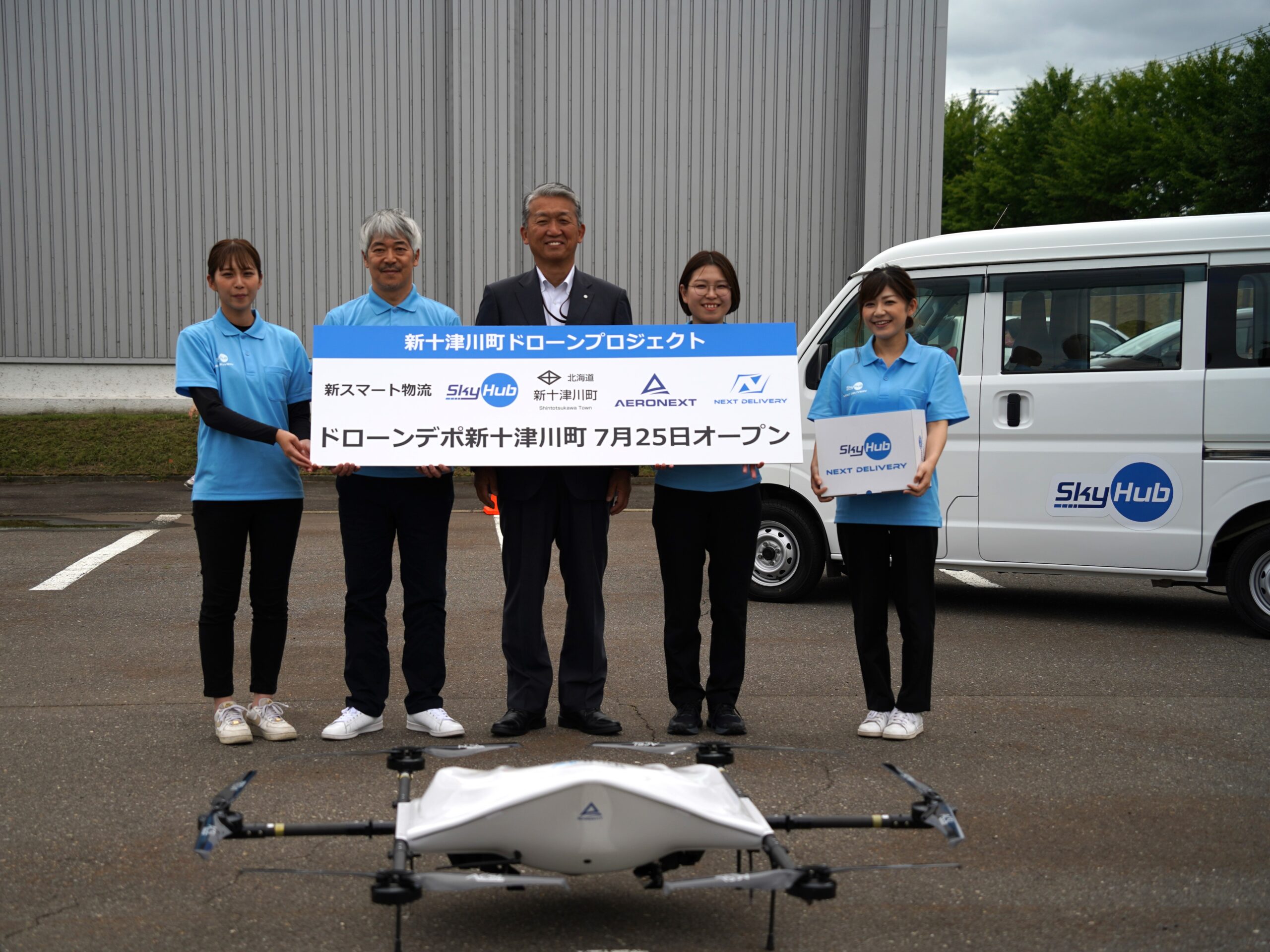
From 2024, we will also drive our business outside of Japan by combining the knowledge and experience gained from implementing the SkyHub® business in Japan, including our experience in drone delivery of medical supplies in the Noto Peninsula earthquake. First, to enable Mongolians to establish services that meet the needs and business customs of their own country, we are working with local people, including Newcom Group, our partner in Mongolia, to train local technical and operational teams, build a foundation for drone delivery services, and develop laws and regulations. We will continue to engage in Mongolia and hope you will enjoy watching out progress both in our domestic and international activities.